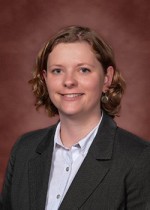Bachelor of Science

Apply this major to a wide variety of human services occupations that all center around a common focus: people and communities. Apply your passion for taking care of, and advocating for others as a Human Services major.
0
$0

Mathea Jablonsky
Read more about MatheaPsychology and human services student
“I found that I was most interested in pursuing a career in pediatric occupational therapy due to its focus on helping and supporting children reach their full potential and developmental milestones.”
- Child and Family StudiesChild and Family Studies ConcentrationReady yourself to work with a wide range of client populations in a variety of settings with this concentration.Learn More
- Criminal JusticeCriminal Justice ConcentrationDevelop skills to apply in a variety of state and federal law and enforcement fields in this concentration.Learn more
- GerontologyGerontology ConcentrationPrepare to work for and interact with the elderly community by choosing this concentration.Learn more
- GeneralGeneral ConcentrationTo receive training and preparation across different areas, rather than specializing in one, choose this concentration.Learn more
Beyond graduation
Explore the possibilities
A degree in Human Services from VCSU can open up opportunities you never thought possible. Support those around you in a variety of industries. Career opportunities with a Human Services major can include:
- Case Manager
- Law Enforcement
- Program Director or Non-Profit Organization Director
- Substance Abuse, Behavioral Disorder, or Mental Health Specialist
- Human Service Assistants
- Community Health Worker
- Information Clerk
- Activities Director with Long-Term Care Residents
Graduates of Human Services can also pursue graduate school in a variety of disciplines such as
- Social Workers
- Marriage and Family Therapists
- Rehabilitation Counselors
- School Counselor
- Mental Health Counselor
Join clubs and organizations to get involved on campus and in your major.
Where you'll study

Plan of Study
FIRST YEAR
- English Composition
- Elementary Statistics
- Introduction to Sociology
- Speech Communication
- Computer Science and Literacy
- Viking Voyage
- Art and Music
- English Composition
- Lab Science
- Introduction to Psychology Lab
- Wellness
SECOND YEAR
- Additional Humanities or Social
- Science
- Lab Science
- Literacies
- Social Science
- Principles of Marketing
- Introduction to Human Services
- The Family
- Developmental Psychology
THIRD YEAR
- Principles of Management
- Abnormal Psychology
- Race, Ethnic, and Gender Relations
- Understanding Statistics
- Additional Elective
- Organizational Communication
- Research Methods
- Internship
FOURTH YEAR
- Additional Elective
- Communication and Interviewing
- Group Dynamics
- Social Science Theory
- Capstone
- Additional Elective
- First Aid & CPR
- Behavior Modification
- Counseling Theory and Practice
FIRST YEAR
- English Composition
- Elementary Statistics
- Introduction to Sociology
- Speech Communication
- Computer Science and Literacy
- Viking Voyage
- Art and Music
- English Composition
- Lab Science
- Introduction to Psychology Lab
- Wellness
SECOND YEAR
- Additional Humanities or Social Science
- Introduction to the Social and Criminal Justice System
- Lab Science
- Literacies
- Social Science
- Additional Electives
- Public Relations
- Developmental Psychology
- Introduction to Human Services
- The Family
THIRD YEAR
- Additional Electives
- Principles of Management
- American National Government
- Abnormal Psychology
- Understanding Statistics
- Organizational Communication
- Criminology and Delinquency
- Research Methods
- Internship
- Additional Course
FOURTH YEAR
- Additional Electives
- Communication and Interviewing
- Social Science Theory
- Capstone
- U.S. Constitution: Civil Liberties
- Group Dynamics
- Corrections: Institutional and Community
- Behavior Modification
- Counseling Theory and Practice
FIRST YEAR
- English Composition
- Elementary Statistics
- Introduction to Sociology
- Speech Communication
- Computer Science and Literacy
- Viking Voyage
- Art and Music
- English Composition
- Lab Science
- Introduction to Psychology Lab
- Wellness (Gen Ed )
SECOND YEAR
- Additional Humanities or Social Science
- Intercultural Communication
- Lab Science
- Literacies
- Social Science
- Additional Electives
- Intercultural Communication
- Introduction to Human Services
- The Family
- Developmental Psychology
THIRD YEAR
- Additional Electives
- Principles of Management
- Abnormal Psychology
- Introduction to Gerontology
- Understanding Statistics
- Organizational Communication
- Research Methods
- Internship
FOURTH YEAR
- Additional Electives
- Communication and Interviewing
- Group Dynamics
- Abnormal Psychology
- Social Science Theory
- Capstone
- Behavior Modification
- Counseling Theory and Practice
- Health, Illness, and Disability
FIRST YEAR
- English Composition
- Elementary Statistics
- Introduction to Sociology
- Speech Communication
- Computer Science and Literacy
- Viking Voyage
- Art and Music
- English Composition
- Lab Science
- Introduction to Psychology Lab
- Wellness
SECOND YEAR
- Additional Electives
- Additional Humanities or Social Science
- Lab Science
- Literacies
- Social Science
- General Concentration Course
- Developmental Psychology
- Introduction to Human Services
- The Family
THIRD YEAR
- Additional Electives
- General Concentration Course
- Principles of Management
- Understanding Statistics
- Additional Course
- Organizational Communication
- General Concentration Course
- Research Methods
- Internship
FOURTH YEAR
- Additional Electives
- Communication and Interviewing
- General Concentration Course
- Group Dynamics
- Social Science Theory
- Capstone
- General Education Course
- Behavior Modification
- Counseling Theory and Practice
Meet the advisor

Social Science
- McFarland Hall 323C
Accreditation
A college education is an investment in yourself. Making sure your education is high-quality can be difficult, but not at VCSU. We are proud to be accredited by numerous institutions, and with that accreditation comes the assurance you’re receiving the highest quality education that will prepare you for your career.